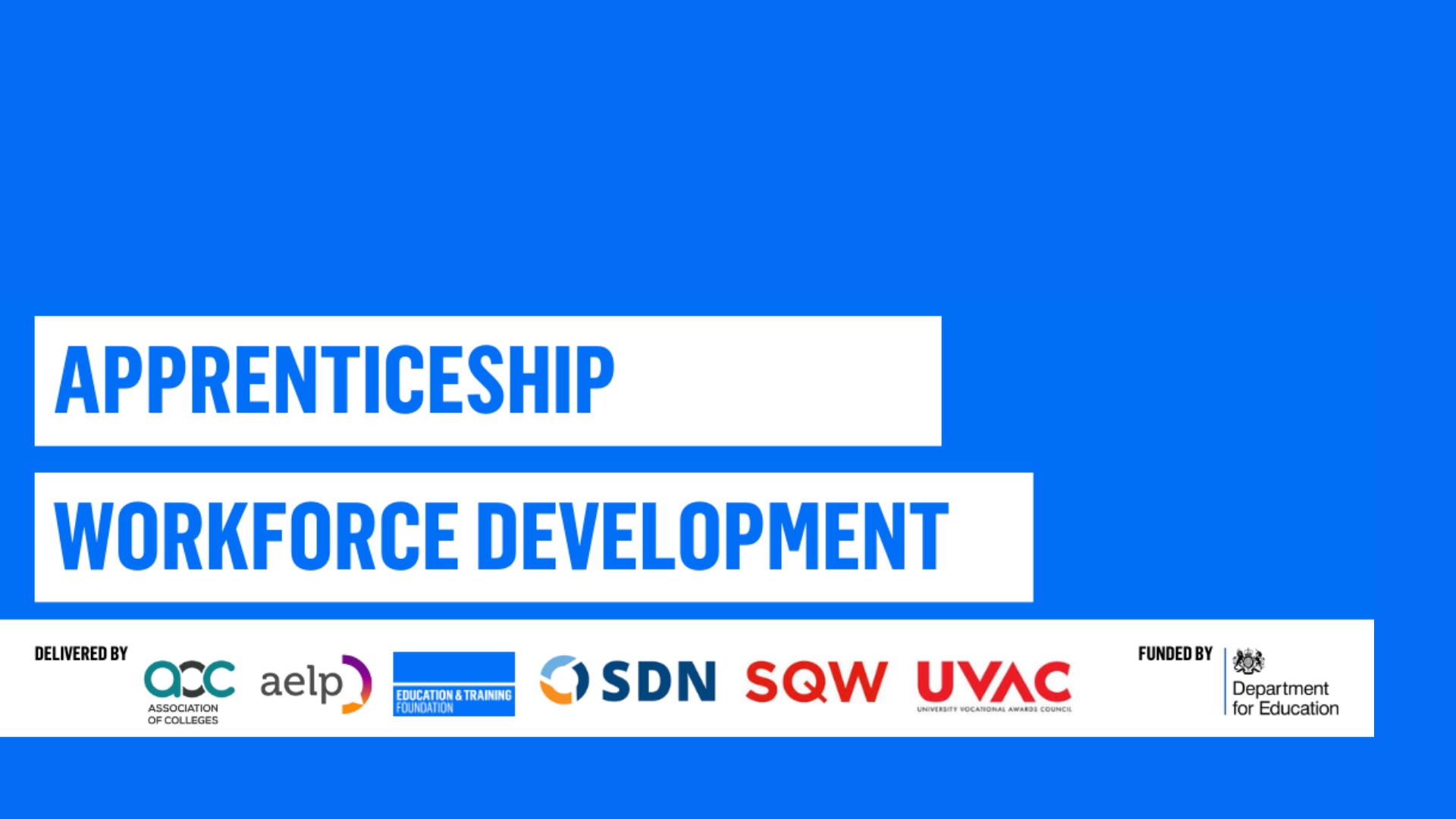Why Implement Effective Strategies to Support the Achievement of Functional Skills Qualification Assessments?
This blog is written by Christine Edwards QTLS of Creating Excellence for the Association of Employment and Learning Providers (AELP), as part of the Apprenticeship Workforce Development (AWD) Programme. The AWD programme is funded by the Department for Education & delivered by the Education and Training Foundation in partnership with the Association of Colleges (AoC), Association of Employment and Learning Providers (AELP), Strategic Development Network (SDN), SQW and University Vocational Awards Council (UVAC)
In the UK, Functional Skills qualifications are critical components of the post-16 educational landscape, particularly at Level 2. These qualifications encompass essential skills in English, mathematics and digital skills, which are vital for personal development, employment and thriving in modern Britain. Given their significance, implementing effective strategies to support learners in achieving these qualifications is paramount.
Designed to equip learners with the practical skills required in everyday life, education and the workplace, these Level 2 qualifications are equivalent to GCSEs and are valued as a solid alternative. Businesses crave employees who possess robust English, maths and digital skills as they are connected to the performance of essential business tasks, solving problems and effective communication. The lack of strong basic skills is costing businesses and the UK economy billions of pounds every year, and is not helping competition with other countries in the global marketplace.
From the perspective of basic skills, the UK workforce needs a minimum of Level 2 Functional Skills qualifications to keep pace. These qualifications are often prerequisites for progressing to higher education and degree apprenticeships, supporting academic progression and future career development. Mastery of functional skills empowers individuals, especially adults who suffer from anxiety due to poor past experiences and low self-confidence, to make informed decisions, manage daily tasks and participate positively in society.
To ensure learners achieve their Functional Skills qualifications, providers and their staff have a responsibility to implement comprehensive and effective strategies. Developing a Whole Organisational Approach to the positive and continuous development of maths, English and digital skills for everyone is a proven method to achieve this objective.
Here’s how it can be achieved:
Effective Initial Assessment
The process starts with initial assessment, which sets the foundation for everything that follows. Conducting thorough initial assessments is crucial to identifying starting points and defining specific learning needs. These assessments must determine individual strengths and areas for development. By understanding where learners excel, recognition can be given for successful achievement, and targeted intervention can then be provided where support is needed. This approach creates a more positive learning experience and builds confidence from a platform of previous success.
Development of Individualised Learning Plans (ILPs)
ILPs are essential for addressing individual learner needs. Solid ILPs set clear goals and targets using the SMART (specific, measurable, achievable, relevant, time-bound) structure, helping learners stay focused and motivated. Learners should be actively involved in this process to ensure they understand the value of their learning programme. This form of engagement increases the likelihood of achieving set targets, as learners are more motivated when they see personal value in their education and development.
ILPs should outline detailed plans of the activities, resources and timelines required to achieve the goals, providing a framework for a structured and coherent learning experience. Regularly reviewing and updating ILPs based on learner progress ensures continuous improvement and allows for relevant adjustments to the overall plan.
Providing Targeted Instruction
Instruction should focus on the areas where learners need the most support. Teaching things that learners already know wastes valuable resources and is not motivating. While practice and consolidation are important, the emphasis should be on targeted instruction where needed. This can involve group work, which provides opportunities for collaboration and peer learning, as well as individual support tailored to meet the learner’s needs. This is where Functional Skills Specialist Tutors can have a significant impact by providing well-targeted individual support.
Enhancing Learner Engagement
Engagement is key to learner success. Motivating learners through realistic challenges, celebrating achievements and relating learning to real-life contexts can sustain interest and effort. Building a supportive learning community through peer support and mentoring programmes can also enhance learning experiences and outcomes.
Leveraging Technology
Incorporating technology into teaching and learning can provide significant benefits. Using educational software, accessing online resources and utilising virtual classrooms can make learning more dynamic and accessible. These tools offer interactive and personalised learning experiences, supporting diverse learning needs and styles.
Preparation for Assessments
Proper preparation for assessments is crucial for learner success. Conducting mock exams helps learners become familiar with the format and expectations, reducing anxiety and building confidence. Teaching effective time management and stress management techniques can improve performance, ensuring learners are well-equipped to succeed.
Summary
Implementing effective strategies to support the achievement of Functional Skills qualifications is vital for learner success. By conducting thorough initial assessments, developing personalised learning plans, providing targeted instruction, utilising a variety of approaches and methods, and enhancing learner engagement, significant improvement can be achieved in learning outcomes. Assessment preparation through mock exams, targeted teaching and stress management techniques ensures learners are well-equipped for success. By investing in these positive strategies, learners are better placed to achieve their qualifications and unlock their full potential, paving the way for them to flourish.
A dedicated, live online course ‘Supporting Apprentices with English and Maths (Contextualised)’ is offered as part of the AWD Programme. New dates will be announced shortly – please visit the ETF booking site for more information and bookings once the new dates are live.
IN OTHER LATEST NEWS

5 days ago, Amanda Danells-Bewley

7 days ago, Amanda Danells-Bewley
NEWS BY CATEGORY
Get our latest news and events direct to your inbox - join our mailing list
Please enter your details below –


